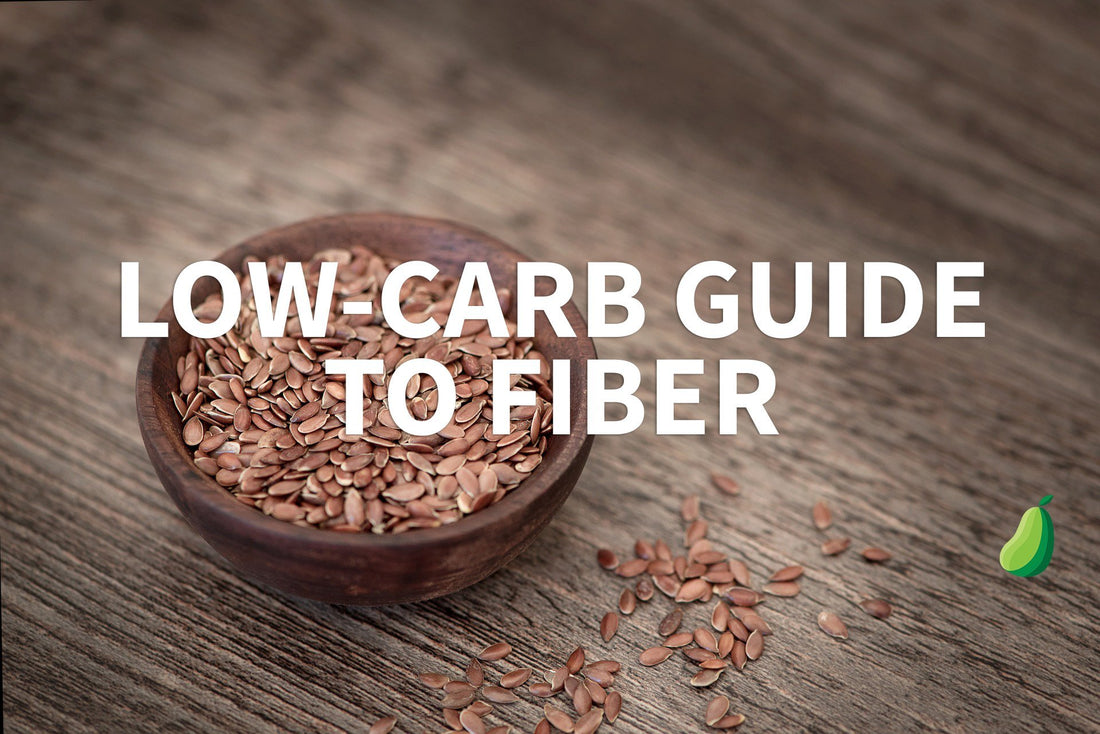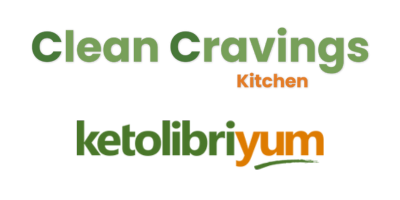
The Low-Carb Keto Guide to Fiber
Aria PalcichShare
Despite keto in the media being all bacon and cheese, at Ketolibriyum we believe a healthy balanced low-carb way of eating can also include healthy low-carb fiber sources. In this blog post, we explore what exactly fiber is, who might need more of it, and some great keto-friendly sources of fiber!
What exactly is Fiber?
Fiber, or dietary fiber, is essentially an indigestible type of carbohydrate found in plants. Our body cannot fully digest fiber, so it passes through our digestive system either completely undigested, or it is broken down via fermentation in the large intestine. Fiber cannot be broken down into sugar like other carbohydrates, which is why we tend to subtract fiber from total carbs to find our net carbs.
Total carbs – fiber = net carbs
There are two types of fiber, soluble and insoluble. Soluble fiber dissolves in water, becoming almost like a gel in our digestive track. This can slow digestion, keep us feeling full as well as minimize the increase in blood glucose rising! Insoluble fiber does not dissolve in water, but stays intact the whole way through the digestive process acting as a broom, sweeping out ‘debris’ along the way, helping us to stay regular!

Generally, those eating strict low-carb tend to eat less fiber. While this is not always troublesome, some people may benefit from including a little more fiber in their diet.
The Importance of Fiber
Some problems associated with a lack of fiber include digestive issues – anything from constipation to an irritable bowel – as well as microbiome issues (aka gut flora issues). While most people find their digestion regulates after a few weeks of switching to a low-carb keto diet, if you are experiencing constipation adding a little more fiber in may be beneficial. Fiber adds bulk to our stool helping to keep us regular and stay on top of waste removal. Click here for other ways to stay on top of digestion!
That is why at Ketolibriyum we add a side of vegetables to many of our keto meals, such as cabbage, cauliflower or broccoli, all low-carb sources of soluble fiber! A lot the keto snacks and breads we carry like Live organic flax crackers and UnBun contain a healthy amount of fiber and can be introduced into a healthy keto diet!
Prebiotic Fiber
One thing the keto diet tends to lack in is prebiotic fibers. Another buzz word in the health community, prebiotic fibers are a special type of dietary fiber found in plants that feed our gut flora – aka our microbiome. Essentially prebiotics act as a ‘fertilizer’ feeding our good gut bacteria in the gut. Prebiotic fibers help to keep us regular, support immune function, and aid in weight management. Keto friendly sources of prebiotic fiber can be found in onions, garlic, asparagus and leeks.
Keto Friendly Sources of Fiber
Although a lot of fibrous foods like legumes, fruit and starchy vegetables are generally too high in carbs to include on a keto diet, there are a lot of great options that can fit into a healthy keto lifestyle. Additionally, those focused on eating low-carb high-fat rather than strict keto can enjoy more of these low-carb vegetables and add in some other starchy vegetables or fruits as well!
Vegetables
- Cabbage
- Cauliflower
- Green Beans
- Lettuce
- Cucumber
- Eggplant
- Kale
- Peppers
- Spinach
- Avocado
